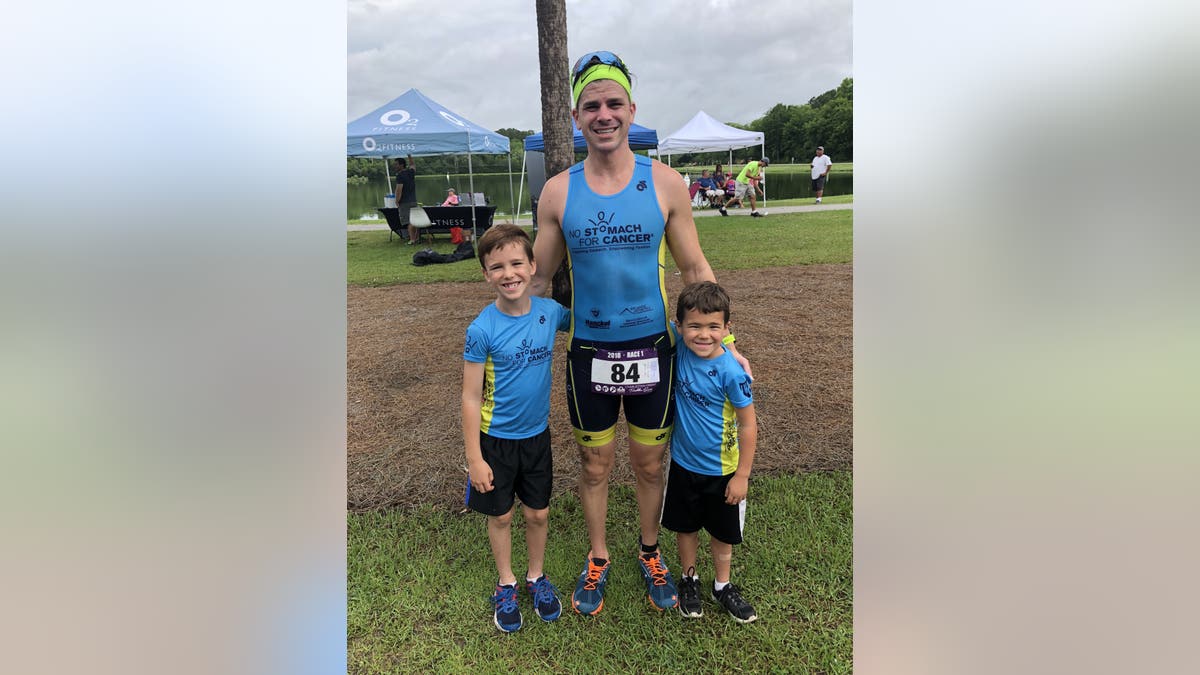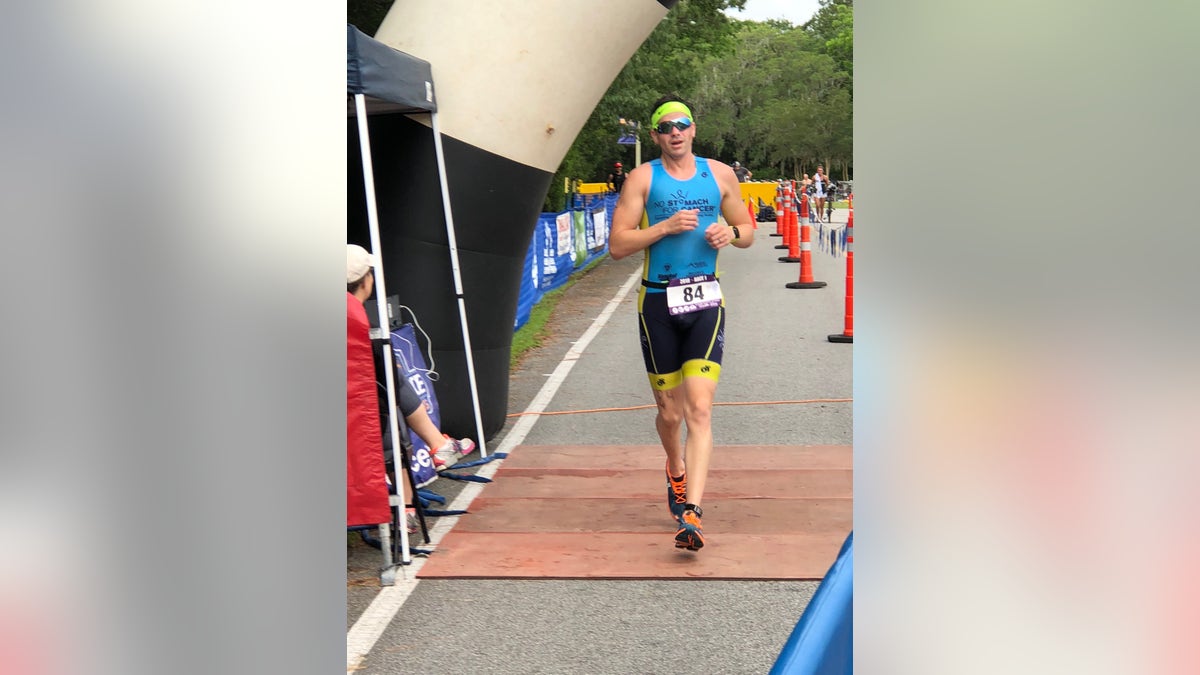
A little more than a year ago, Dylan Davison elected to have his stomach removed after he was diagnosed with a condition that put him at an increased risk of developing aggressive cancer that had already claimed three relatives. (Courtesy of Dylan Davison)
A South Carolina man will set out to complete 70.3 miles of an Ironman course this weekend, without the help of a major organ. A little more than a year ago, Dylan Davison elected to have his stomach removed after he was diagnosed with a condition that put him at an increased risk of developing aggressive cancer that has already claimed three relatives.
“It didn’t take long,” 33-year-old Davison told Fox News, of his decision. “I was diagnosed the first week of October 2017, and we had surgery Jan. 6, 2018.”
NEW VA SPINAL INJURY CENTER HELPS VETERANS HEAL
Davison had been diagnosed with hereditary diffuse gastric cancer (HDGC), which typically causes patients to develop diffuse gastric cancer in their late 30s or 40s, but isn’t detected until late stages, according to the U.S. National Library of Medicine. HDGC can also put patients at risk of developing of types of cancer, also occurring before age 50.

Davison first found that walking, and then jogging helped him when it came to eating. (Courtesy of Dylan Davison)
Davison, a father of three, got in touch with Dr. Sam Yoon, a surgical oncologist at Memorial Sloan Kettering Cancer Center in New York who specializes gastric cancers, after consulting with others on NoStomachForCancer.org. Yoon put him in touch with his other HDGC patients, and stressed that Davison shouldn’t delay his decision.
“Thinking back, it seems like a bad dream,” Davison said.
Yoon removed Davison’s entire stomach, and connected his esophagus directly to his small intestines, drastically changing how his digestive system works. Additionally, he was diagnosed with celiac disease, meaning his entire approach to eating would have to change.
TEXAS TEEN BITTEN BY RATTLESNAKE FLOWN TO ARIZONA AFTER ALLERGIC REACTION TO ANTI-VENOM
“Recovery was bizarre,” he said, adding that much of his diet was based on trial and error. “Your body is so used to getting already broken down food from the stomach, and now you can only break it down by chewing it more.”
He said he spent the first several weeks on the couch dealing with the ramifications of testing out his new diet restrictions. Eventually, he figured out that foods dense in carbs or high in sugar caused his body to have a hypoglycemic reaction, limiting his diet even further. The adjustment was also difficult mentally for Davison, a formula-based thinker who prefers to have a playbook.
“The turning point was at six weeks or so, when I did longer walks and started jogging, and then I started to do some swimming and realized something was happening,” he said. “As I increased my heart rate, my body was more desperate to receive the food and drinks, so my weight started coming off at a slower rate, I started building muscle. I would go for a jog – drink a Gatorade, and it would be fine.”
The jogs got longer, and the swims more intense, and eventually Davison began upping his training with a friend to prepare for the IRONMAN 70.3 Florida on April 14. He said the major difference in his nutrition plan now as opposed to before his surgery, is that he eats and drinks more frequently during runs or rides versus waiting to come upon an aid station.
“I’ve had some good training sessions where I’ve tried these things out, but it is a little nerve-wracking,” he said of his upcoming race.
CLICK HERE TO GET THE FOX NEWS APP
He said setting training goals has helped in his recovery more than he realized it would, and that blogging about the experience has connected him with people from all over the world.
“There was a moment early on where I didn’t know if I would ever run again, I was so beat down from feeling sick — I was feeling really sorry for myself,” he said. “But these small changes, these small milestones – jogging to running, I started swimming, I did a sprint triathlon where my goal was to beat my time with a stomach – and I finally did it at the end of August last year, I beat my time by about a minute or so, and I was really motivated at that point.”
